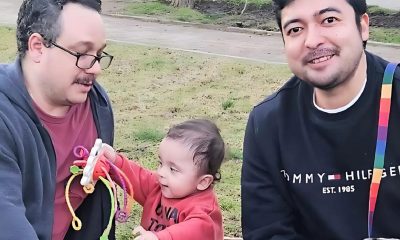World
Mexican Supreme Court finds gay marriage ban unconstitutional
Ruling cites two U.S. Supreme Court cases on racial segregation
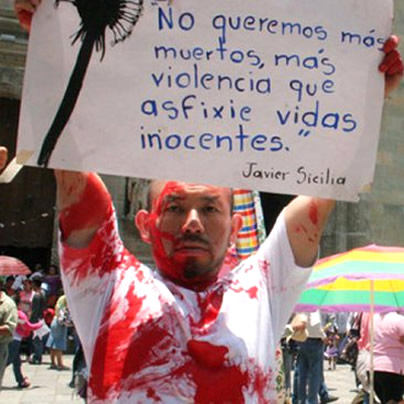
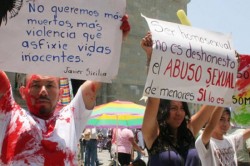
Lawyer Alex Ali Mendez Diaz represented three same-sex couples from the Mexican state of Oaxaca whom local authorities denied marriage licenses. (Photo courtesy of Alex Ali Mendez Diaz)
The 56-page decision cites two U.S. Supreme Court cases that specifically addressed race-based discrimination and segregation: Loving v. Virginia that found state bans on interracial marriages unconstitutional and Brown v. Board of Education that struck down laws that allowed separate public schools for black and white students.
“The historic disadvantages that homosexuals have suffered have been amply recognized and documented: public scorn, verbal abuse, discrimination in their places of employment and in the access of certain services, including their exclusion from certain aspects of public life,” the judges wrote. “In comparative law it has been argued that discrimination that homosexual couples have suffered when they are denied access to marriage is analogous with the discrimination suffered by interracial couples at another time.”
They further point out the U.S. Supreme Court said in Loving v. Virginia that restricting marriage on the basis of race is “incompatible” with the Equal Protection Clause under the 14th Amendment of the Constitution.
“In connection with this analogy, it can be said that the normative power of marriage is of little use if it does not give the possibility to marry the person that one chooses,” the judges wrote.
The court released its decision more than two months after the judges unanimously struck down the Oaxaca law that defined marriage as between a man and a woman.
Three couples tried to apply for marriage licenses in the state, but local authorities denied their applications. Lawyer Alex Alí Méndez Díaz filed lawsuits on behalf of two of the couples in Aug. 2011 and a third in Jan. 2012 who sought legal recourse — an “amparo” in the Mexican judicial system — to ensure local authorities would protect their constitutional rights.
The ruling also comes roughly six weeks before the U.S. Supreme Court will hear oral arguments in cases challenging the constitutionality of California’s Proposition 8 and the Defense of Marriage Act.
“They do it when in our country there is no previous rulings on the subject,” Méndez told the Washington Blade from Mexico City when asked whether it is common for Mexican Supreme Court judges to cite cases from other countries in their decisions. “These rulings are the first at the national level that support the topics in the way in which we had planned.”
Marriage debate continues throughout Latin America
Same-sex couples have been able to legally marry in the Mexican capital since 2010, and the Mexican Supreme Court has ruled other states must recognize gay marriages legally performed in Mexico City. Gays and lesbians have also married in Quintana Roo on the Yucatán Peninsula, while the state of Coahuila offers property and inheritance rights and other limited legal protections to same-sex couples.
The Uruguay House of Representatives in December overwhelmingly approved a bill that would allow gays and lesbians to tie the knot. Same-sex marriage advocates expect the measure will easily pass in the country’s Senate in April — President José Mujica has said he will sign it into law.
A Colombian Senate committee in December also approved a same-sex marriage bill. A court in the Brazilian state of São Paolo later that month ordered registries to begin offering marriage licenses to same-sex couples without a judge’s approval.
Argentina has allowed same-sex couples to marry since 2010, while Chilean President Sebastián Piñera in 2011 said he would introduce a bill that would allow gay men and lesbians to enter into civil unions. Same-sex couples would be allowed to tie the knot and adopt children in French Guiana under a proposal the French Senate is scheduled to begin debating on April 2.
The Inter-American Court of Human Rights in Feb. 2012 ruled in favor of lesbian Chilean Judge Karen Atala who lost custody of her three daughters to her ex-husband in 2005 because of her sexual orientation. Three gay couples from Chile who had been denied marriage licenses filed a lawsuit with the tribunal last September after the South American country’s Supreme Court ruled against them.
The Mexican Supreme Court cited the Atala case its decision that only applies to the three same-sex couples who had sought marriage licenses in Oaxaca.
“It just confirms that fighting for marriage equality on a federal level makes more sense and is becoming an increasingly global trend,” Enrique Torre Molina, an LGBT activist and blogger in Mexico City, told the Blade.
The Mexican Supreme Court on Wednesday is expected to formally announce its decision on whether the Oaxacan law that defines marriage as between a man and a woman is discriminatory. The judges will have to rule on an additional “amparo” from Oaxaca before gays and lesbians can legally tie the knot in the state.
“For there to be same-sex marriage throughout the country, if there is not a reform of the civil laws of each state, we will need five rulings in each one of the states that comprise the federation [of Mexico,]” Méndez noted.
United Kingdom
UK Supreme Court rules legal definition of woman limited to ‘biological women’
Advocacy groups say decision is serious setback for transgender rights
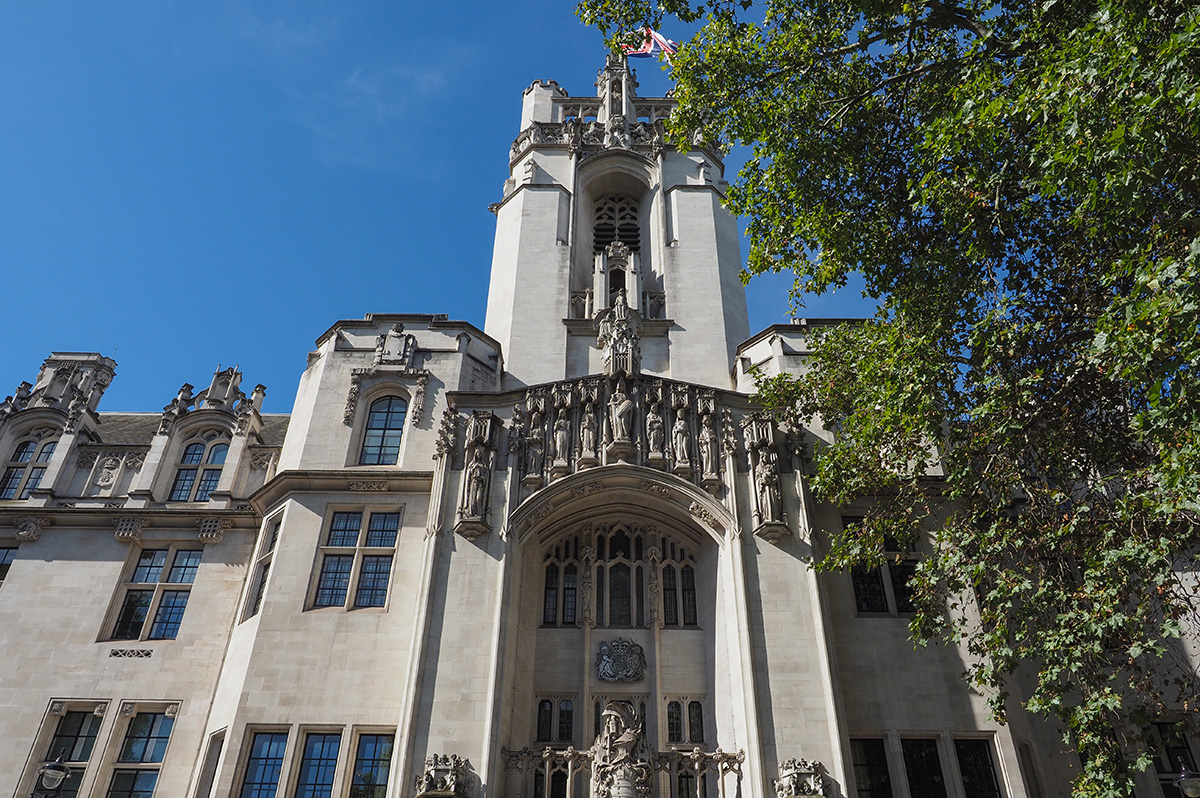
The British Supreme Court on Wednesday ruled the legal definition of a woman is limited to “biological women” and does not include transgender women.
The Equality Act that bans discrimination based on sexual orientation and gender identity took effect in 2010.
Scottish MPs in 2018 passed a bill that sought to increase the number of women on government boards. The Supreme Court ruling notes For Women Scotland — a “feminist voluntary organization which campaigns to strengthen women’s rights and children’s rights in Scotland” — challenged the Scottish government’s decision to include trans women with a Gender Recognition Certificate in its definition of women when it implemented the quota.
Stonewall U.K., a British advocacy group, notes a Gender Recognition Certificate is “a document that allows some trans men and trans women to have the right gender on their birth certificate.”
“We conclude that the guidance issued by the Scottish government is incorrect,” reads the Supreme Court ruling. “A person with a GRC (Gender Recognition Certificate) in the female gender does not come within the definition of ‘woman’ for the purposes of sex discrimination in section 11 of the EA (Equality Act) 2010. That in turn means that the definition of ‘woman’ in section 2 of the 2018 Act, which Scottish ministers accept must bear the same meaning as the term ‘woman’ in section 11 and section 212 of the EA 2010, is limited to biological women and does not include trans women with a GRC.”
The 88-page ruling says trans people “are protected by the indirect discrimination provisions” of the Equality Act, regardless of whether they have a Gender Recognition Certificate.
“Transgender people are also protected from indirect discrimination where they are put at a particular disadvantage which they share with members of their biological sex,” it adds.
Susan Smith, co-founder of For Women Scotland, praised the decision.
“Today the judges have said what we always believed to be the case, that women are protected by their biological sex,” she said, according to the BBC. “Sex is real and women can now feel safe that services and spaces designated for women are for women and we are enormously grateful to the Supreme Court for this ruling.”
Author J.K. Rowling on X said it “took three extraordinary, tenacious Scottish women with an army behind them to get this case heard by the Supreme Court.”
“In winning, they’ve protected the rights of women and girls across the UK,” she added.
It took three extraordinary, tenacious Scottish women with an army behind them to get this case heard by the Supreme Court and, in winning, they’ve protected the rights of women and girls across the UK. @ForWomenScot, I’m so proud to know you 🏴💜🏴💚🏴🤍🏴 https://t.co/JEvcScVVGS
— J.K. Rowling (@jk_rowling) April 16, 2025
Advocacy groups in Scotland and across the U.K. said the ruling is a serious setback for trans rights.
“We are really shocked by today’s Supreme Court decision — which reverses 20 years of understanding on how the law recognizes trans men and women with Gender Recognition Certificates,” said Scottish Trans and the Equality Network in a statement posted to Instagram. “The judgment seems to have totally missed what matters to trans people — that we are able to live our lives, and be recognized, in line with who we truly are.”
Consortium, a network of more than 700 LGBTQ and intersex rights groups from across the U.K., in their own statement said it is “deeply concerned at the widespread, harmful implications of today’s Supreme Court ruling.”
“As LGBT+ organizations across the country, we stand in solidarity with trans, intersex and nonbinary folk as we navigate from here,” said Consortium.
The Supreme Court said its decision can be appealed.
El Salvador
Gay Venezuelan makeup artist remains in El Salvador mega prison
Former police officer said Andry Hernández Romero was gang member because of tattoos
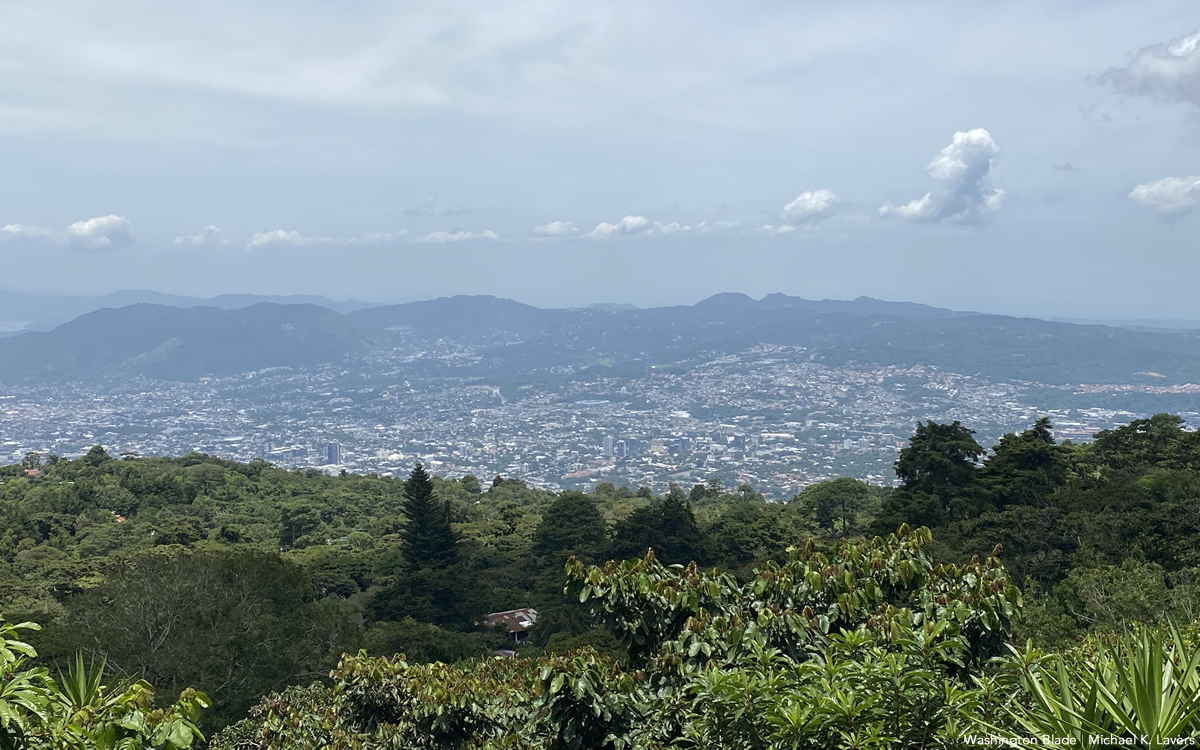
A new investigation points to a discredited, former police officer who played a “key role” in the wrongful deportation of Andry Hernández Romero, a gay asylum seeker and makeup artist who was sent to a maximum security mega prison in El Salvador under Trump’s Alien Enemies Act.
USA Today found in a recent investigation that the former Milwaukee police officer who filed the report about Hernández, citing his tattoos as the reason for the gang affiliation, has a long history of credibility and disciplinary issues in his former police officer position.
The private prison employee who previously worked as a police officer until he was fired for driving into a house while intoxicated — among other alcohol-related incidents — “helped seal the fate” of Hernández.
The investigation by USA Today found that the former police officer accused Hernández of being a part of the Tren de Aragua gang because of his two crown tattoos with the words “mom,” and “dad,” which are now being identified as Venezuelan gang-related symbols.
Since then, his story has made headlines across the nation because Hernández has no criminal record and is legally seeking asylum in the U.S. due to credible threats of violence against him in Venezuela because of LGBTQ persecution.
He was targeted shortly after Trump invoked the Alien Enemies Act of 1798, which is a proclamation for all law enforcement officials to “apprehend, restrain, secure, and remove every Alien Enemy described in section 1 of [the] proclamation.”
Charles Cross, Jr., the former police officer, signed the report which wrongfully identified Hernández as a gang member. Cross was fired in 2012 after many incidents relating to his credibility and how it was affecting the credibility of the department to testify in court.
He had already been under investigation previously for claiming overtime pay that he never earned. In 2007, he had also faced criminal charges for damage to property, according to court records.
In March, the Washington Blade spoke with the Immigrant Defenders Law Center Litigation and Advocacy Director Alvaro M. Huerta regarding the case and stated that “officials with U.S. Immigration and Customs Enforcement and U.S. Customs and Border Protection alleged his organization’s client was a member of Tren de Aragua, a Venezuela-based gang, because of his tattoos and no other information.”
Hernández came to the U.S. last year in search of asylum and now makes up one of 238 Venezuelan immigrants who were deported from the U.S. to El Salvador, Honduras and Venezuela. Many of those being deported are being sent to the Center for Terrorism Confinement, a maximum-security mega prison in El Salvador, which has been accused of human rights violations.
According to the investigation, the Department of Homeland Security “wouldn’t offer further details on the case, or the process in general, but reiterated that the department uses more than just tattoos to determine gang allegiance.”
His story is now being looked at as a cautionary tale of the lack of due process of law the U.S. government is taking, as the Department of Homeland Security and Immigration and Customs Enforcement ramp up deportations across the nation.
Organizations like the Human Rights Campaign are now calling for Secretary of State Marco Rubio and Secretary of Homeland Security Kristi Noem to cease wrongful deportations and return Hernández home. The petition also urges the U.S. government to afford all Americans, forging nationals and asylum seekers residing in the U.S., due process of law as required by the Constitution.
Argentina
Gay, nonbinary parent fights for family in Argentina’s courts
Leonardo Hatanaka alleges they were fired after requesting paternity leave

An unprecedented case could set an important legal precedent for the rights of labor rights for LGBTQ families in Latin America.
Leonardo Hatanaka, a Brazilian pharmaceutical professional, expects an imminent ruling from the Superior Court of Justice in the Autonomous City of Buenos Aires in a case that alleges discriminatory dismissal based on sexual orientation, gender identity, and xenophobia after their son Matteo’s birth in Argentina via “solidarity gestation.” Human rights organizations and international agencies have followed the case closely.
Genzyme de Argentina S.A. and Sanofi in 2023 fired Hatanaka weeks after they notified them of their son’s paternity and requested 180-day parental leave.
“Matteo’s birth was the realization of a dream and the right to form a family with love, dignity and equality, even if that means having to fight every day for our family to be recognized as such,” Hatanaka told the Washington Blade in an exclusive interview.
The National Institute Against Discrimination, Xenophobia and Racism, a government agency known by the acronym INADI that President Javier Milei’s administration has shut down, in November 2023 said Hatanka’s termination was motivated by discrimination based on sexual orientation and gender identity.
(Milei took office in December 2023.)
The General Directorate of Coexistence in Diversity in Buenos Aires’s government in 2024 said institutional xenophobia motivated the firing.
“I am a gay man, foreign, nonbinary, and I had requested to exercise my right to parental leave,” Hatanaka explained. “The company denied access to a basic right to care, which it does provide in other countries, and did not provide any medical coverage for our son, despite his legal registration with both parents’ names.”
Sanofi did not acknowledge responsibility, offer apologies or any kind of reparations, despite the two rulings.
“It was devastating. I was caring for a newborn, at a moment of enormous vulnerability, and the company chose just that moment to abandon us,” said Hatanaka.
The National Labor Court overturned an initial injunction that ordered Hatanaka’s reinstatement. Hatanaka appealed the decision to the Superior Court of Justice in the Autonomous City of Buenos Aires.
“I hope for justice; that the discrimination suffered is recognized, and that this ruling serves as a precedent for all diverse families and LGBTQ+ people who are seeing their rights violated,” said Hatanaka.
The Argentine LGBT Federation, SOS Homophobie in France, and Mothers of Resistance in Brazil are among the organizations that have expressed their support. The latest U.N. report on anti-LGBTQ discrimination also notes the case.
“Companies must go beyond marketing,” Hatanaka emphasized. “Real inclusion requires concrete actions, consistency, and respect for their own policies.”
Hatanaka stressed that “there are instruments such as the UN Guiding Principles on Business and Human Rights. It is time for them to comply with them.” The lawsuit has also become a symbol of the struggle for equality and protection of families with parents who are the same sex.
“I feel I represent many LGBTQ+ families who live in fear of losing everything by exercising their rights,” said Hatanaka. “LGBTQ+ parenting is legitimate, real and deserves protection. No family should be punished for existing.”
-

 The White House5 days ago
The White House5 days agoWhite House does not ‘respond’ to reporters’ requests with pronouns included
-

 District of Columbia2 days ago
District of Columbia2 days agoReenactment of 1965 gay rights protest at White House set for April 17
-

 Hungary2 days ago
Hungary2 days agoHungarian MPs amend constitution to ban public LGBTQ events
-

 Maryland2 days ago
Maryland2 days agoFreeState Justice: Transgender activist ‘hijacked’ Moore’s Transgender Day of Visibility event

